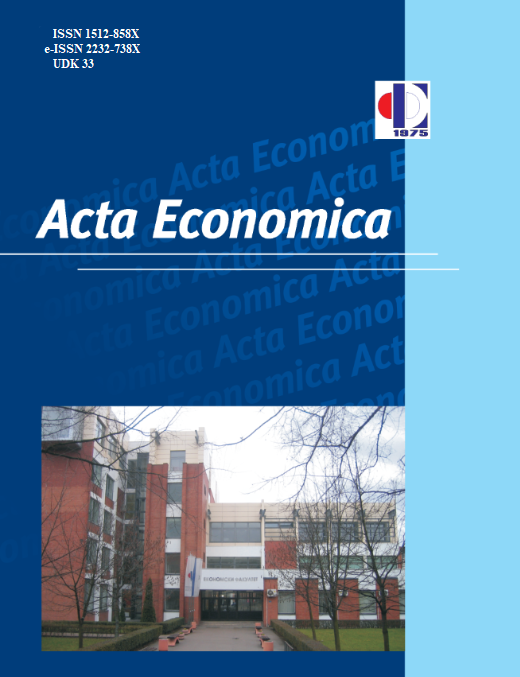CREDIT POLICY OF BANKS IN THE FUNCTION OF DEVELOPING THE ECONOMY OF REPUBLIC OF SRPSKA
DOI:
https://doi.org/10.7251/ACE2134225BAbstract
The banking sector of Republika Srpska features a high level of legal and regulatory compliance, and can be defined as conservative banking with deposits as the main source of business and loans as their fundamental product. The availability of funds for lending under favourable conditions in the economy is the fundamental and most important function provided by the banking sector, even though its role is crucial in executing payment transactions as well as providing security in savings products. As per expectations, quantitative analysis shows a very high level of correlation between the changes in the volume of bank loans and the changes in the gross domestic product in Republika Srpska. On the one hand, the credit policy of banks represents an important basis for the development of enterprises and the economy, and for the business of banks, on the other. Banks obtain the highest revenues from the active interest rates, and through defining an adequate credit policy with respect to the conditions existing in the economic environment, they can make their operations more secure and profitable. By using the data from the survey questionnaire, we investigated the extent to which the credit policy of banks affects the financial stability and business operations of companies in Republika Srpska.

